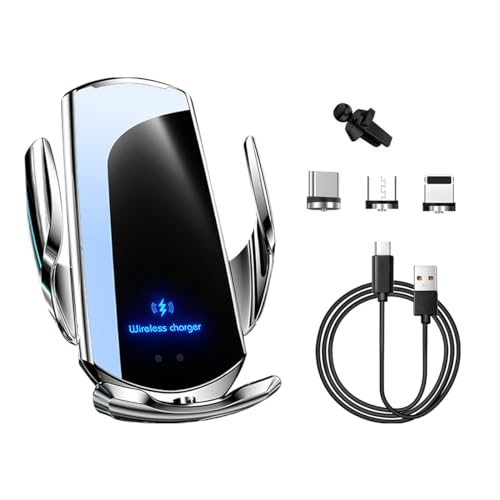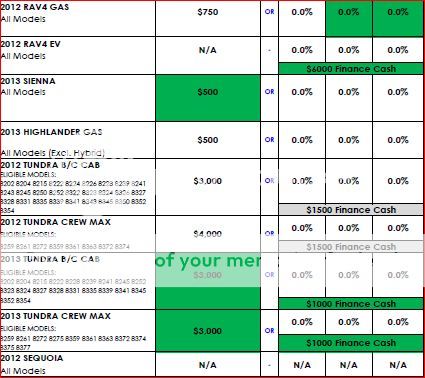Jscifres
Well-known member
Dsinned said:...In December ... sales were still terrible. This tells me "the market" hardly exists and that is a real problem with respect to Toyota's marketing efforts. The other problem is at the dealerships, where ignorance is a major impediment to potential customers. Toyota's sales force at the dealerships is not helping sales at all imho!
Looks like it's not just Toyota dropping the ball on the sales experience...
Article: "How not to sell a Ford C-max Energi"
http://www.autoweek.com/article/20130107/CARNEWS01/130109916
Which leads me to believe that the consumer interest in EVs is all generated by word of mouth advertising... And a car with unique looks will initiate more conversations than one which blends into the crowd.
Story below:
ear-end U.S. auto sales results have been reported, and for the most part the news is excellent -- gains of 5 to 10 percent are the norm.
Automakers are fortunate to have good products in high demand, because if the tales of consumer woe that come to our inboxes are an indication, many of their dealerships still appear hell-bent on undermining their efforts.
Luxury automakers are an exception: They understand the importance of a premium sales experience, and they're actively taking steps to ensure the process is smooth. But visiting a mass-market brand store can have all the allure of a colonoscopy, a point driven home to me by a friend over the recent holiday break.
This friend, whom we'll call “Mike” for anonymity's sake since his purchase was as a company car, was given a choice of several green vehicles. He selected a Ford C-Max Energi plug-in hybrid over a Toyota Prius or a Chevrolet Volt and managed to find a dealer in his home state of Florida who actually had one in stock.
That's where the fun began.
Being a company car transaction, haggling over price and financing -- the bane of most consumers -- was trouble-free. But I'll let Mike explain the rest of his experience buying one of Ford's most technologically advanced flagship products. It starts upon exiting the finance department:
“After a wasteful hour and 20 minutes with one, then two, then three sales guys trying to show me the features and functions of my car, it was obvious no one knew how the car worked. And they all told me several times, 'We don't have any of these on the lot to play with and figure out. It's basically the same as the regular C-Max, with a few extras.'”
Not exactly the product evangelism Ford is likely aiming for, but…
“They could not tell me how and when the car would be using electric [power] and when it would be operating in gas/hybrid mode. There is a button on the dash that has 'EV' on it. When you push it, a screen pops up on the dash and gives you three choices: Auto, EV, & EV+. At the dealer I asked about the button and pushed it. The screen popped up and 'Auto' was selected and the other two options were not available. I asked why [this was the case] and no one could tell me. 'Once you start driving it, those will be available,' they said.”
Really? Could it have been that the battery was near empty on available juice, deactivating EV mode? As it turns out, yes.
“Your battery is just low now, it will charge as you drive and use your brakes.”
Or you could…plug it in. Being that the C-Max Energi is a plug-in hybrid. But no one showed him how or where to do that, either.
At least the dealer was able to help my friend connect his smartphone, right? After all, the Sync voice-activated infotainment system has been in Ford vehicles for years now. Sadly, no, the store personnel could not; after Mike was unable to connect the device, the salesperson blamed my friend's hardware.
“I was told my phone software must be old (it's a brand new phone) and I needed to upgrade the phone software and take it to the Verizon store and have them help me,” said Mike. “They also told me that their one Sync expert was on vacation, or he might be able to help.”
The final insult? My friend had heard about Ford's ambient lighting system, a simple, fun and largely useless feature that's been on many Ford vehicles for years. When Mike inquired as to whether his C-Max was so equipped, the salesman not only didn't know, but he basically dismissed the feature entirely: “Well, I'm not sure. I can't really see it and plus it's hard to see in the daytime.”
Translation: “I don't know so you shouldn't care.”
Okay, so that wasn't the final insult to this consumer's intelligence.
“I had to ask them to put gas in it. The salesman told me, 'We might be able to do that. Any other questions?'”
There you go. Years of effort and billions of dollars spent in product development, engineering and marketing, frittered away thanks to an ill-informed, poorly trained and -- most definitely in this case -- lazy car dealer.
Even if Mike's experience was an anomaly -- bad experiences occur everywhere -- the truth is that last mile in the extraordinary journey from an engineer's pencil to a customer's hands remains the most vexing problem facing carmakers today. I've experienced this type of treatment at dealers, as have friends and family. I'd wager many of you readers can share a similar horror story.
What's an automaker to do? Remember: Dealers are independent franchisees, so there's only so much a parent company can do to ensure the customer service experience meets minimal expectations. Manufacturers do this by rewarding dealers on customer satisfaction indexes and consumer ratings.
And coming to the dealer's defense, salespeople are usually paid commissions when they close a deal -- their incentive is to spend as little time as possible selling a vehicle (for as much as possible) so they can move on to the next deal. Churn and earn. Time spent in product training is time salespeople can't spend selling. Sure, it's an investment in customer satisfaction (and if the salesperson considers it, it's an investment in his sales abilities), but anyone who's ever worked in a showroom is trying to contain their chortles right about now.
This twisted system ensures automakers and dealers alike pay the price in lost business, angry word-of-mouth anecdotes and bashing on blogs and social media sites. Carmakers must continue to invest time and money educating all consumer-facing dealership employees on new products and features before they hit showroom floors. Dealers must compensate salespeople for the deal and for truly satisfied customers. Dollars spent at the dealer level will pay dividends far greater than the millions blown on, say, forgettable and overhyped Super Bowl commercials.
As is often the case, my friend Mike was confident enough in the product to push past the dealer's best efforts to drive him into the arms of a competitor. And he spent 20 minutes extolling the virtues of his new C-Max Energi. But when the time comes, will he choose another Ford? If so, will he buy it from the same dealership?
His answer today is no to both.


























